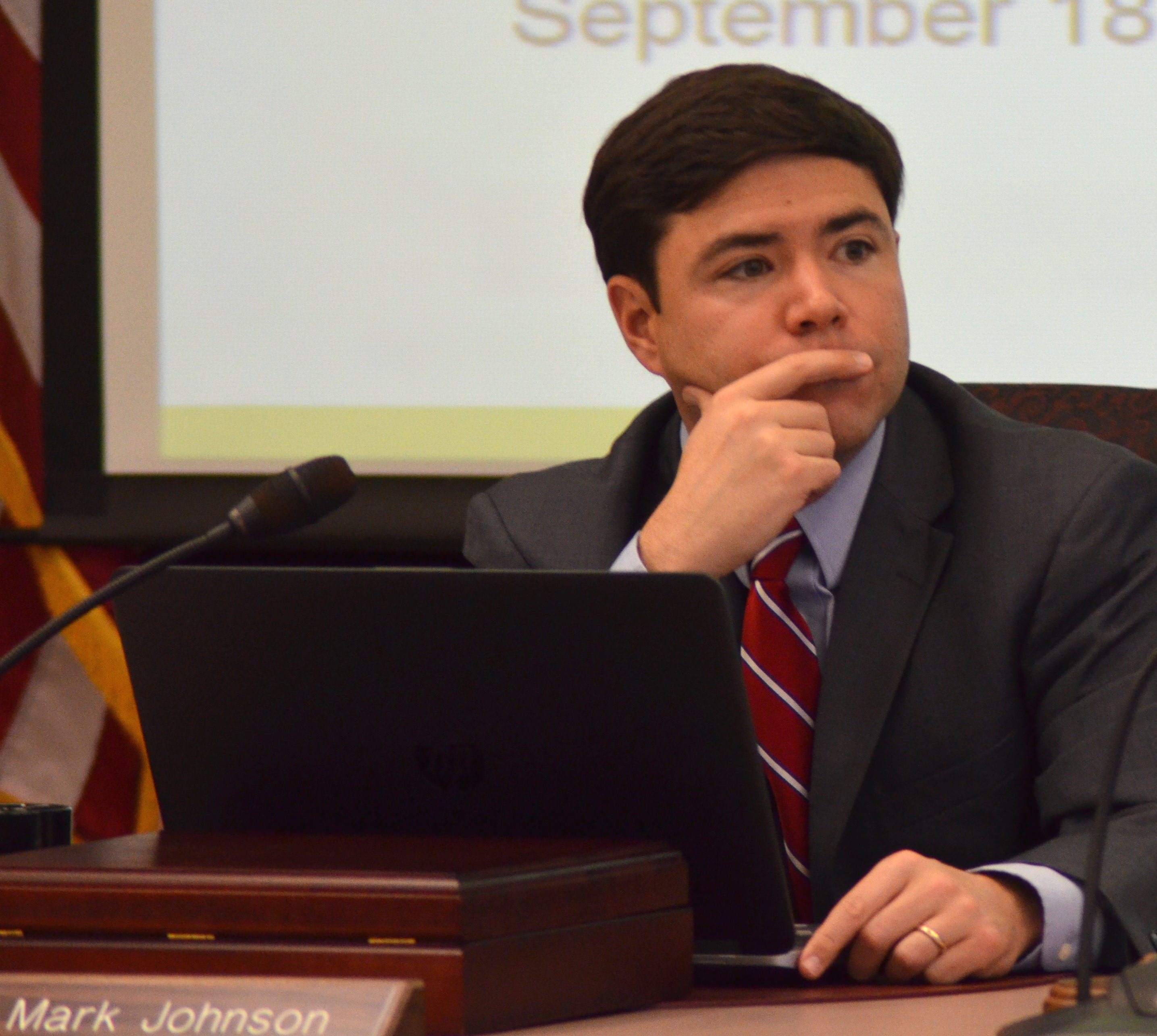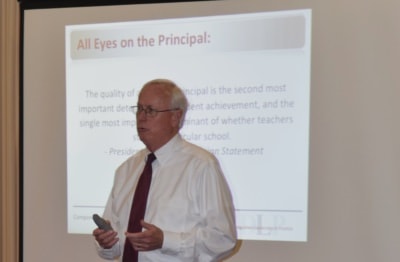While new state Superintendent Mark Johnson’s first day at the State Board of Education was Wednesday, it was on Thursday that he finally had the opportunity to remark upon his vision for the future of North Carolina.
Less than a week on the job, he was given the opportunity on the second day of the two-day meeting to introduce himself formally to the Board of Education and the many members of the packed audience in the education building.
“I want to share with you why I’m here, why I’m passionate about education, and what my guiding principles will be over the course of the next few years,” he began.
He started with a bit of history explaining that his grandfather was “dirt poor” and never went to high school, but was able to provide a future for his family through hard work.
“He grew up in a time when it was easier to not graduate from high school and pull yourself up from your bootstraps,” Johnson said.
Because of his grandfather’s hard work, Johnson’s family was able to excel, culminating in Johnson being able to attend Emory University and, eventually, law school at the University of North Carolina at Chapel Hill.


Johnson said his family made clear to him that what a person does and learns during a K-12 education can determine what happens for the rest of his or her life. But while Johnson got a good education, his family also taught him that not everyone has access to the kind of high-quality education that can allow for success.
“Not every child has the opportunity to go to one of our schools, get a great education, work hard, and reach their American dream. And that made me angry,” he said. “And I wanted to work hard to do something about it.”
After college, Johnson went to teach at West Charlotte High School, which he described as a tough environment for both teachers and students.
He was a ninth grade science teacher instructing not only the typical 13- and 14-year-olds, but also students who were 16, 17, and 18 and not able to pass ninth grade.
He had successes and failures, he said, but the story that sticks with him is one about a 16-year-old student he taught in his second year.
By that time, Johnson had his class management skills down, he explained, so the students would file into the classroom quietly, collect their assignments and books, and start reading.
One particular student — the aforementioned 16-year-old — was more fond of skipping class and cutting up. But one day, when the student walked in and saw all the other kids behaving properly, he asked Johnson for his textbook and assignment. Johnson said he was thrilled. It was a dream moment for a teacher — getting through to a hard-to-reach student.
But Johnson’s enthusiasm was smashed moments later when the student called him over after starting the assignment.
“I still remember to this day,” Johnson said. “He told me, ‘Mr Johnson, I can’t read the words in this book.’”
As Johnson campaigned around the state this past year for the role of Superintendent of Public Instruction, he said he carried that story with him.
“That has driven a great sense of urgency within me,” he said. “To transform our public education system, so I can see in my lifetime a school system that doesn’t let that happen.”
During his comments, Johnson went on to lay out what he says are his guiding principles, starting with “Urgency.”
There are no days to be wasted, he said.
“Every day that we don’t take bold actions for our students is a day that our students lose,” he said.
“Ownership” was the second principle he named. He said that the state has issues with its system of testing, and that it sometimes graduates students who aren’t prepared for either the workforce or college.
“It is our job to own those challenges and find solutions,” he said.
Finally, he listed “Innovation.” He said that innovation is what will transform the state’s educational system.
“Our curent system is outdated. I will be generous and I will say that this system was designed for students in the 1950s. And I say that that is generous because you could probably trace this system that we’re using today back to the 1920s or even earlier,” he said.
Johnson said that his first step as Superintendent will be to take a listening tour around the state, listening to the ideas of stakeholders, local school board members, General Assembly members, DPI staff and more, all in an attempt to find out what the people of North Carolina think needs to be done to improve education.
When he was finished, State Board Chair Bill Cobey threw in some remarks supporting Johnson’s vision.
“I have felt a sense of urgency ever since I started sitting in this chair,” he said, adding later: “I don’t think there are any excuses for us not reaching the low achievers and bringing them along so that they can experience the American dream and have a great life. And we will all benefit. Not just them. We will all benefit.”
See the video below of Johnson’s remarks.



